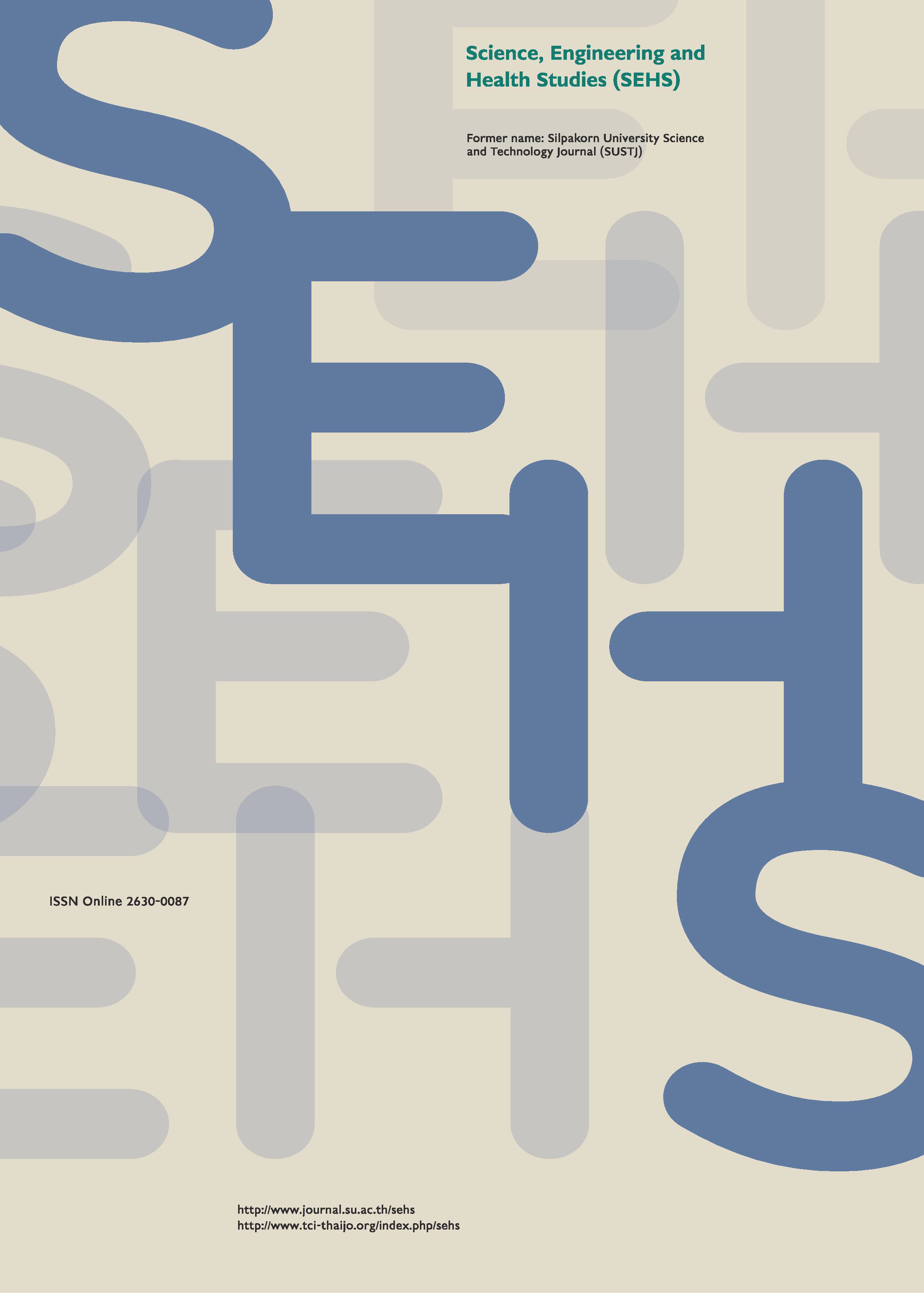An operating model design of medical agile noninvasive data governance
Main Article Content
Abstract
Data governance is defined as general data management practices and redundant data structures; it sets direction and controls to ensure compliance with rules, policies, and regulations. However, large organizations with large amounts of data and complex structures require more focus on people and interactions, based on the agile concept. It entrusts a co-design and decision-making team with no invasion of the original role to support the organization’s business in operations. The data should be embedded in the analysis group to sprint the data analysis cycles. This research focused on an operating model, the medical agile noninvasive data governance, which aimed to formally assign roles and responsibilities to groups with specific expertise. The resulting streamlined workflow benefited from various planning strategies for further healthcare services; thus, the healthcare organization in Thailand chose this as a case study. This research emphasized the roles and responsibilities throughout the organization to show a more accurate imple-mentation process of the prototype. Implementation and evaluation were categorized into two levels: organizational and operational. An in-depth organizational-level interview evaluated the resulting the responsible-accountable-supportive-consulted-informed matrix for the policy establishment process. The operational-level assessment made the function of the concept visible through a role-playing representation of data operations. A questionnaire of role-playing roles was used for assessment in terms of agility, connectivity, redundancy, reducing roles, and process responsibilities. The highest level of overall satisfaction was 4.65 on a 5-point rating scale. After comparing the results of existing frameworks or studies, the researchers found that this prototype design was complete, with coverage of both roles and responsibilities of each level according to the organizational structure. It could streamline work processes and lead to analytics to connect with valuable, accurate, and transparent targeted outcomes for organizations.
Downloads
Article Details

This work is licensed under a Creative Commons Attribution-NonCommercial-NoDerivatives 4.0 International License.
References
Abbott, K. M., Hulshult, A., Eshraghi, K., Heppner, A., Crumbie, V., Heid, A. R., Madrigal, C., Spector, A., and Haitsma, K. V. (2022). Applying agile methodology to reengineer the delivery of person-centered care in a nursing home: A case study. Journal of the American Medical Directors Association, 23(9), 1442-1447.
Abraham, R., Schneider, J., and vom Brocke, J. (2019). Data governance: A conceptual framework, structured review, and research agenda. International Journal of Information Management, 49, 424-438.
Brickson, P. (2016). Implementing data governance with agile project management methodologies. Master’s thesis. The College of St. Scholastica, USA.
Brous, P., Overtoom, I., Herder, P., Versluis, A., and Janssen, M. (2014). Data infrastructures for asset management viewed as complex adaptive systems. Procedia Computer Science, 36, 124-130.
Filgueiras, F., and Lui, L. (2022). Designing data governance in Brazil an institutional analysis. Policy Design and Practice. [Online URL: https://www.tandfonline.com/doi/epdf/10.1080/25741292.2022.2065065?needAccess=true&role=button] accessed on April 16, 2022.
Hardy, C., and Leonard, J. (2011). Governance, risk and compliance (GRC): Conceptual muddle and technological tangle. In Proceedings of the 22nd Australasian Conference on Information Systems, 42. Sydney, Australia.
Henderson, D., Earley, S., Sebastian-Coleman, L., Sykora, E., and Smith, E. (2017). DAMA-DMBOK Data Management Body of Knowledge, 2nd, New Jersey: Technics Publications, pp. 17-52.
Jia, L., Hall, D., and Song, J. (2015). The conceptualization of data-driven decision making capability. In Proceedings of the 21st Americas Conference on Information Systems, pp. 811-823. Fajardo, Puerto Rico.
Ladley, J. (2012). Data Governance: How to Design, Deploy and Sustain an Effective Data Governance Program. Massachusetts: Morgan Kaufmann Publishers, pp. 7-20.
Lillie, T., and Eybers, S. (2019). Identifying the constructs and agile capabilities of data governance and data management: A review of the literature. In Proceedings of the 10th International Development Informatics Association Conference, pp. 313-326. Tshwane, South Africa.
Luna, A. J. H. de O., Kruchten, P., and de Moura, H. P. (2015). Agile governance theory: Conceptual development. In Proceedings of the 12th International Conference on Management of Technology and Information Systems, arXiv:1505.06701. Sao Paulo, Brazil.
Otto, B. (2015). Quality and value of the data resource in large enterprises. Information Systems Management, 32(3), 234-251.
Peeters, T., Van De Voorde, K., and Paauwe, J. (2022). The effects of working agile on team performance and engagement. Team Performance Management, 28(1-2), 61-78.
Pereira, A. S., and Wahi, M. M. (2021). Development and testing of a roleplaying gamification module to enhance deeper learning of case studies in an accelerated online management theory course. Online Learning Journal, 25(3), 101-127.
Seiner, R. S. (2020). Non-Invasive Data Governance: The Path of Least Resistance and Greatest Success. New Jersey: Technics Publications, pp. 11-20.
Stephens, J. J. (2018). Data governance importance and effectiveness: health system employee perception. Doctoral thesis. Michigan University, USA.
Tiffin, N., George, A., and LeFevre, A. E. (2019). How to use relevant data for maximal benefit with minimal risk: Digital health data governance to protect vulnerable populations in low-income and middle-income countries. BMJ Global Health, 4, e001395.
Vestues, K., Hanssen, G. K., Mikalsen, M., Buan, T. A., and Conboy, K. (2022). Agile data management in NAV: A case study. In Proceedings of the 23rd International Conference on Agile Software Development, pp. 220-235. Copenhagen, Denmark.
Winter, J. S., and Davidson, E. (2019). Big data governance of personal health information and challenges to contextual integrity. The Information Society, 35(1), 36-51.


